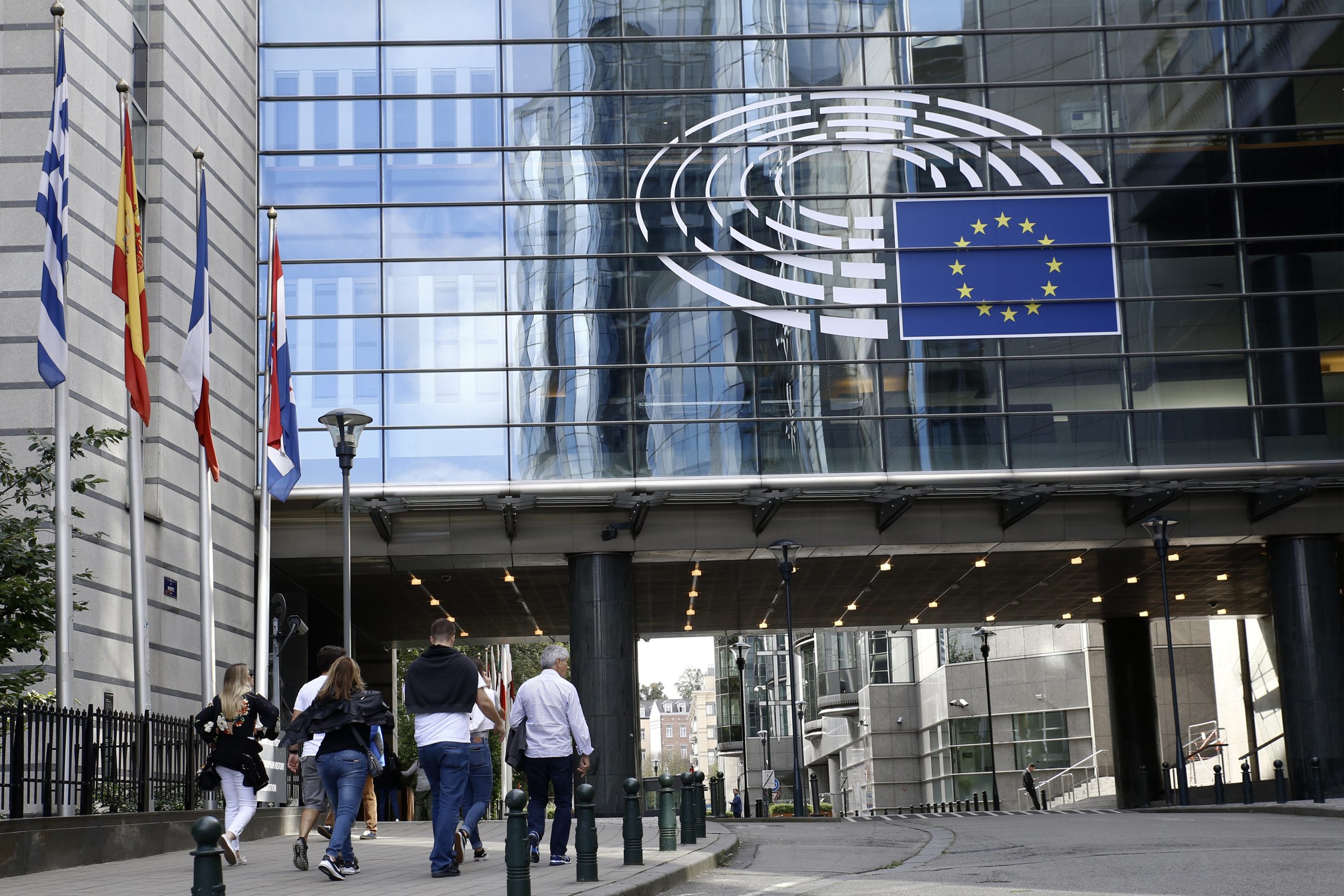
Sovereignty in the Age of Social Media—TikTok At the Intersection of National Security, Democracy, and Free Expression (Part I.)
In a surprising shift in legislative pace and bipartisan cooperation, the United States Congress is making notable strides towards imposing stringent regulations on ByteDance, the parent company of TikTok, by potentially forcing it to divest from the social media platform or face a national ban. As we have already written about, this type of legislative effort is not without precedent; ByteDance has previously navigated similar threats. However, the current momentum suggests a tangible possibility for change, contrasting sharply with the usual inertia observed in Congress regarding tech regulations.
The “Protecting Americans from Foreign Adversary Controlled Applications Act,” which recently sailed through the House Energy and Commerce Committee with unanimous bipartisan approval, mandates ByteDance to relinquish control over TikTok within a stipulated timeframe or face a prohibition in the U.S. Moreover, it introduces a mechanism enabling the President to ban any application deemed a national security threat by foreign adversaries. This legislative action represents a significant escalation from previous threats, embedding the administration’s concerns over Chinese ownership of TikTok—used by 170 million Americans—into a concrete legal framework. These concerns stem from fears that the app could be utilized for espionage and to further Chinese influence operations, highlighting the broader geopolitical tensions between the U.S. and China.
As it was expected, TikTok and its community have voiced strong opposition, framing the legislation as an infringement on Americans’ constitutional right to free expression. This stance is underscored by the company’s claim that the bill effectively preordains a total ban on TikTok in the U.S., which would have profound implications for businesses, artists, and creators reliant on the platform. TikTok has also mobilized its extensive user base in an unprecedented manner, urging them to contact their congressmen to oppose the legislation. Congress got thousands of phone calls from youth urging lawmakers to block the TikTok bill. This act of political advocacy by TikTok reflects a strategic effort to leverage its large community against the proposed regulations, underlining the platform’s stance that the bill infringes on Americans’ right to free expression. This type of active mobilization of its user base to lobby against the bill underscores the high stakes involved. The platform’s push notifications urging users to oppose the legislation reflect a novel, though not unprecedented, strategy of leveraging user engagement for political advocacy. This move, however, has drawn criticism from some lawmakers who view it as an inappropriate interference in the legislative process, and also stirred criticism among some lawmakers who view it as an inappropriate interference in the legislative process, proving their point, that TikTok can have a major influence on its users.
The bill’s rapid movement and broad support contrast starkly with earlier legislative initiatives aimed at regulating tech platforms, which often stalled due to partisan divisions and intense lobbying efforts. What sets this legislative effort apart are its swift progression through the legislative process, the bipartisan nature of the support it has garnered, and the proactive involvement of the Biden administration. These elements collectively indicate a concerted effort to address the perceived national security risks associated with TikTok’s Chinese ownership more decisively than in previous attempts. The situation presents a complex dilemma: while the bill seeks to mitigate national security threats without directly imposing content restrictions, critics argue that a blanket ban on TikTok could inadvertently curtail a wide range of expressive activities. The proposed bill underscores a broader and deeply complex issue: the intersection of national security concerns with the constitutional right to free speech. This dilemma is not unique to the digital era but has gained unprecedented prominence due to the global reach and influence of social media platforms.
National security is a fundamental responsibility of any sovereign state, tasked with protecting its citizens, institutions, and territorial integrity from external threats. In the context of national security, information and communication technologies can serve as double-edged swords, while they enable freedom of expression and access to information, they can also be weaponized by foreign entities to undermine public safety and national interests. The U.S. Constitution, particularly the First Amendment, enshrines the right to free speech, press, assembly, and the petitioning of the government for a redress of grievances. However, this right is not absolute; there are well-established legal precedents where free speech can be limited for reasons of national security. The key legal challenge lies in balancing these two imperatives: ensuring the security of the state while not unduly infringing upon the freedoms that define it.
In the case of TikTok, the argument for limitation hinges on the platform’s potential to act as a conduit for foreign espionage and influence operations. The fear is that the Chinese government could exploit ByteDance’s data collection capabilities to gather intelligence on American citizens and potentially disrupt the democratic process through misinformation campaigns or other forms of digital manipulation. Such actions could pose a direct threat to national security, justifying regulatory measures that might otherwise seem in conflict with free speech principles.
Historically, the U.S. has enacted laws and regulations to address similar tensions between national security and free speech. The Espionage Act of 1917 and the Sedition Act of 1918, for example, were controversial for their restrictions on speech during World War I. In the Cold War era, the Smith Act of 1940 targeted speech deemed supportive of subversion or forceful overthrow of the government. While some of these laws have since been criticized, modified, or repealed, they illustrate the government’s prerogative to limit speech under certain circumstances deemed threats to national security.
The challenge with TikTok and similar digital platforms lies in the novel and rapidly evolving nature of the threats they pose, which may not be adequately addressed by existing legal frameworks. As such, new legislation aiming to restrict TikTok’s operations in the U.S. ventures into largely uncharted legal territory, raising critical questions about how to apply traditional principles of national security versus free speech in the digital age.
Ultimately, any actions taken to limit TikTok on national security grounds must navigate these legal and ethical complexities, seeking a solution that protects the public and the nation’s democratic values without unnecessarily compromising the fundamental right to free expression. This delicate balance is central to maintaining the integrity of both national security and the freedoms that characterize a democratic society.
This legislative tactic is significant for several reasons. Firstly, it illustrates a calculated effort to circumvent direct confrontation with issues of free speech and censorship by not imposing direct restrictions on the content or operations of TikTok. Secondly, it highlights the intricate interplay between national security considerations and the principles of free expression, particularly in the context of the 170 million Americans who engage with TikTok for a variety of purposes, including commerce, entertainment, and social interaction.
However, the methodology employed by the Act to achieve its goals warrants close scrutiny. Notably, the legislation does not directly impose restrictions on TikTok itself. Instead, it strategically targets app stores and internet service providers, imposing regulatory obligations that collectively serve to restrict TikTok’s operational capabilities within the United States. This nuanced approach underscores a critical aspect of the legislative strategy: the Act refrains from directly mandating any specific actions from TikTok. Rather, it imposes regulatory requirements on a range of ancillary service providers, effectively creating a regulatory environment that constrains TikTok’s ability to conduct business in the U.S. market.
Understanding the dynamics of this legislation, as well as the diverse stakeholders involved and the potential ramifications for TikTok’s future operations in the United States, necessitates a deep dive into the regulatory mechanisms it employs. By focusing on regulating the digital ecosystem that supports TikTok’s presence in the U.S. market, the Act represents a sophisticated legal and strategic approach to addressing the complex challenges posed by foreign adversary-controlled applications, underscoring the delicate balance between national security imperatives and the preservation of an open, free, and secure digital environment.
Continuing our exploration into the “TikTok Ban Debate,” we delve deeper into the legislative push to sideline TikTok due to national security concerns. The second part examines the potential impact on democratic values and free speech, questioning whether the United States is veering too close to digital governance models seen in authoritarian regimes.
János Tamás Papp JD, PhD is an assistant professor at Pázmány Péter Catholic University, Hungary, and a legal expert at the Department of Online Platforms of the National Media and Infocommunications Authority of Hungary. He has taught civil and constitutional law since 2015 and became a founding member of the Media Law Research Group of the Department of Private Law. He earned his JD and PhD in Law at the Faculty of Law and Political Sciences of the Pázmány Péter Catholic University. His main research fields are freedom of speech, media law, and issues related to freedom of expression on online platforms. He has a number of publications regarding social media and the law, including a book titled „Regulation of Social Media Platforms in Protection of Democratic Discourses”








